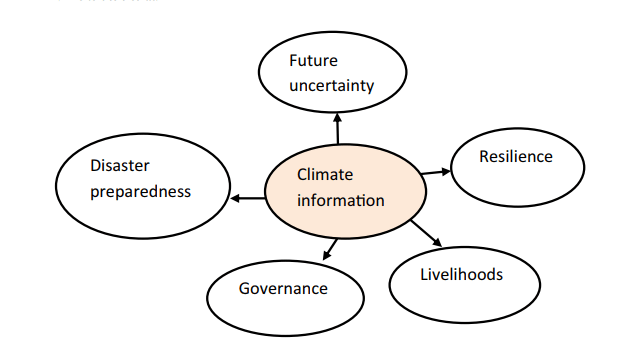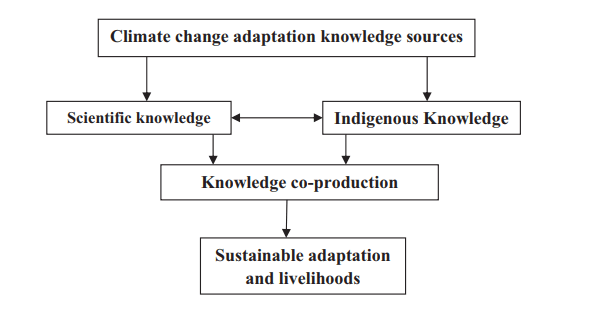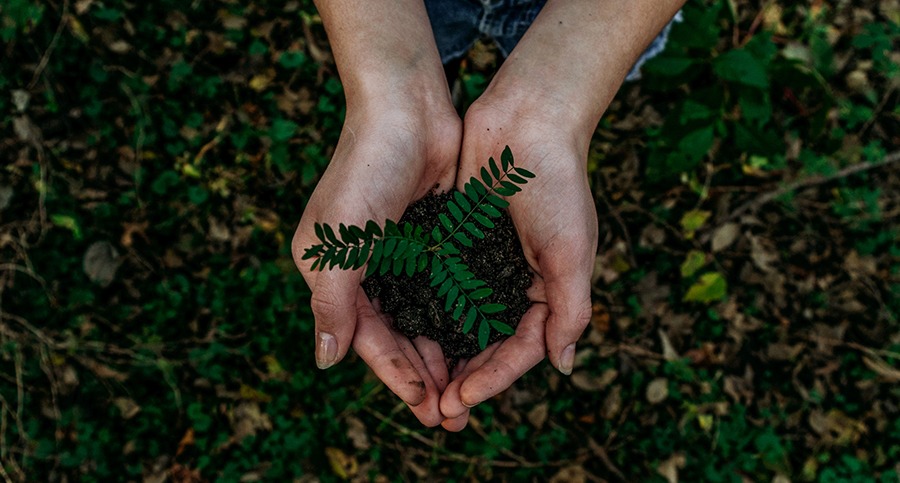Traditional knowledge (TK) describes the know-how, skills and practices that are passed on through generations. Indigenous communities have, for millennia, adjusted their behaviour, strategies and local knowledge to changes in their surroundings. Thus, traditional knowledge provides a useful resource for sustainable development strategy.
TK often forms part of a community’s cultural or spiritual identity. What can we learn from these kinds of cultural practices? And how might they help us assess ‘unsustainable’ practices today?
This article looks at the growing role that traditional knowledge is playing in humanity’s response to the gravest threat we face: climate change.
Indigenous Tradition
TK and indigenous (or local) knowledge is the long-standing wisdom, traditions and practices within communities. It is often passed on through an oral tradition. The knowledge is expressed in stories, legends, folklore, rituals, songs, art, and even laws.
TK is embedded in the economy through agriculture pastoralism, forestry, fisheries, water, and products made from nature such as crafts, furniture, and housing. A majority of the world’s population remain dependent on these sectors for their livelihoods. So, TK contributes significantly towards sustaining billions of people worldwide.
By contrast, the term ‘sustainable development’ (SD) was first reported in the World Commission on Environment and Development in 1983. It was defined as meeting “the needs of the present without compromising the ability of future generations to meet their own needs”. In addition, sustainable development seeks to address poverty, to create equitable standards of living, and to satisfy the basic needs of all people, without incurring irreversible damage to our natural resources.
However, this definition focuses only on how development should sustain human needs. It does not consider the needs of other species.
A distinction often made between TK and modern or ‘western’ knowledge (WK) is that TK does not separate ‘secular’ or ‘rational’ knowledge from spiritual knowledge. Also, TK often embeds cosmology, and often doesn’t distinguish between ‘intangible’ knowledge and physical things.
For TK, knowledge is inseparable from its natural and cultural context. That includes knowledge of traditional lands and resources, as well as kinship and community relations. In comparison, WP often treats TK with skepticism. It might view indigenous knowledge as simply unscientific or superstitious.
Traditional Knowledge and Sustainable Development Strategy
Nevertheless, TK is present in developed countries. However, in this context TK is often practical in nature. It exists in fields like agriculture, fisheries, health, horticulture, forestry, and environmental management. Although these countries do not necessarily acknowledge TK, appreciation of its importance is growing.
TK is valuable not only for those who depend on it, but also for modern industry and agriculture. Many products come from traditional knowledge, such as plant-based medicines, health products and cosmetics. Others include agricultural and non-wood forest products, as well as handicrafts. In this respect, TK makes a significant economic contribution to sustainable development.
Indigenous communities have cultivated and used biodiversity in sustainable ways for thousands of years. In addition, most of the world’s genetic resources are found in places where these communities live. Some ancient practices have even been proven to enhance and promote biodiversity at the local level, and aid in maintaining healthy ecosystems.
The Role of Traditional Knowledge in Sustainable Development
Traditional ecological knowledge (TEK) is borne of a long intimacy and attentiveness to one’s lands. It is rational and reliable knowledge that occurs wherever people are materially and spiritually integrated into their landscape.
By comparison, Western science is conducted within an academic culture which views nature objectively. TEK is woven into, and is inseparable from, its social and spiritual context. Thus, TEK goes beyond the strictly empirical. In indigenous science, nature is subject, not object.
Traditional knowledge also provides a basis for local decision-making on many aspects of day-to-day life, such as:
- hunting, fishing and gathering;
- agriculture and husbandry;
- preparation, conservation and distribution of food;
- location, collection and storage of water;
- coping with disease and injury;
- interpretation of meteorological and climatic phenomena;
- manufacture of clothing and tools;
- construction and maintenance of shelter;
- orientation and navigation on land and sea;
- management of ecological relations of society and nature;
- adaptation to environmental/social change
What are the Threats to Traditional Knowledge?
Recently, the study of indigenous knowledge has expanded worldwide. Today, there is interest in the subject from both research and funding agencies. However, debate remains about its value. It is also difficult to protect the rights of traditional ‘owners’ of TK within a Western legal system.
One of the most practical solutions, as reported by UNESCO, has been the drawing up of codes of ethics, as well as the creation of research guidelines for TK.
Most importantly, the preservation of language and culture is vital. This ensures the correct ‘encoding’ and transmission of knowledge within a culture. It also strengthens the decision-making of traditional societies over changes that may affect them. Equally, conservation and continued access to environments on which a culture depends is a priority.
How Do We Preserve Indigenous Traditions?
To preserve indigenous or local knowledge we must look at its relationship to our environmental governance institutions.
In Western countries, environmental governance is largely guided by its own traditions. This immediately excludes the idea of indigenous environmental governance.
However, things are changing. With greater respect towards indigenous peoples there has been important changes to international, national, and local laws. These are creating opportunities for working collaboratively. Today, indigenous peoples can begin to work alongside non-indigenous institutions in beneficial ways; in ways that respect both local stewardship and worldview.
The controversy Over traditional knowledge
However, TEK still provokes controversy among the general public. There are perhaps three reasons for this:
- TEK often refers to knowledge production systems whose value has been overlooked or is not approved by mainstream scientists and policy makers.
- Definitions of TEK are often formulated by scholars or professionals who are not community members. Hence, these authorities tend to privilege their own agendas for environmental and natural resources stewardship.
- TEK is perceived as being a competing authority with science. This creates a division between indigenous expert authorities and scientific expert authorities. TEK can be an emotive subject, and this may polarise opinions.
Sometimes this division can spill over into outright hostility or war. Cases brought to the public’s attention that support the environment and indigenous people are likely to gain much approval. Science, being harder to grasp, is perhaps less likely to appeal to the general public.
Moreover, like any knowledge, TK is embedded within a particular worldview. In this respect modern science is no different. That includes a specific view on people’s relationship to nature that is strongly defined by its use as a resource.
An Additive Impact on sustainable development
Interestingly, a recent research paper on sustainable climate change adaptation in Ethiopia found that integrating scientific and traditional knowledge provides additive impact for fostering sustainable development. This was also true of its ability to adapt and build resilience to climate change.
According to the report, ‘information’ was of primary importance in responding to the impacts of climate change. This is because changes in climate require a number of different adaptation strategies. As indicated in Fig. 1, having climate information helps to deal with future uncertainty, as well as setting ‘livelihood strategies’ for the future. The report also noted the importance of an alignment in governance options, resilience building, and disaster preparedness.


The report’s model also includes traditional knowledge about the region’s climate. This was knowledge which had been developed by communities over millennia. This sort of knowledge was seen to be an important and enduring source of information for local people.
For example, the study describes the ability of local farmers and pastoralists to anticipate environmental changes. Thus, they were able to make adjustments for more resilient livelihoods during periods of climate change shock. So, combining local knowledge with meteorological information has created an even greater resilience and sustainability.
Conclusion – What is ‘Thrivability’?
Local people have acquired deep knowledge of their environments by observing all the changes happening in their ecosystem. In recognition of this, the Intergovernmental Panel on Climate Change (IPCC) and the Convention on Biological Diversity (SCBD) have incorporated the role of traditional knowledge into sustainable climate change adaptation. Now, that role also includes the conservation of biological diversity.
Therefore, it is important for us to understand the value of indigenous knowledge and practices, and natural resource management initiatives. Whilst it involves very different ways of viewing society and the natural world, TK is an important source of additional information.
The THRIVE Project is a for-impact, not for profit organisation that strives for greater providence and prosperity. We believe that a state of ‘thrivability’, in which we go beyond merely survival, is an achievable goal that should be woven into the fabric of all societies. These principles inform the tools and technology of the Thrive Framework which illuminate the way forward. To find out more, visit our website and explore our publications, podcasts and webinars.























